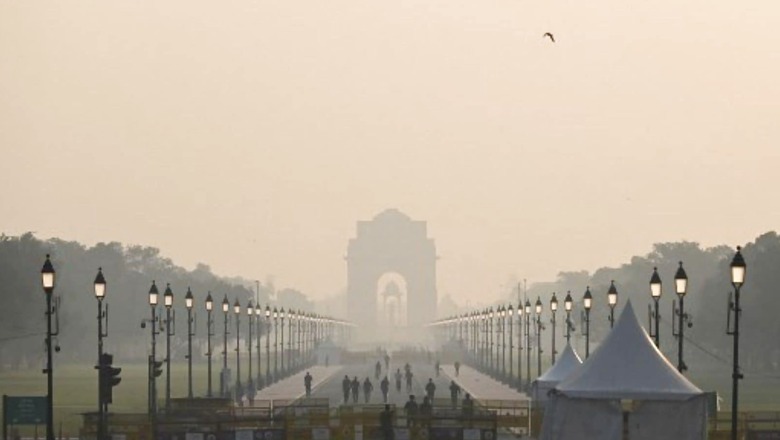
views
As the national capital battles toxic air, the Delhi government’s two major campaigns this winter — No PUC, No Fuel and Red Light On, Gaadi Off — to combat vehicular pollution, the largest contributor to overall pollution in the city, have run into political or legal tangles.
The Delhi government had announced that starting October 25, it will be mandatory for vehicle owners to have a valid Pollution Under Control (PUC) certificate to buy fuel. However, the order was put on hold last week after the petrol and diesel owners’ associations raised law and order concerns over the new scheme in a meeting with the transport department.
“It is being re-examined at the moment. Certain legalities need to be reworked. It may not be implemented as of now,” said a senior Delhi government official who did not wish to be named.
According to officials, the campaign is a concrete step to cut down tailpipe emissions in the city, which has the highest number of registered vehicles in the country apart from a large volume of vehicular traffic coming in from NCR towns on a daily basis.
Delhi has over 13.4 million registered vehicles while over 19 lakh don’t have a valid PUC, as per government data.
Vehicular emissions are the primary source of pollutants in Delhi and contribute to about 40 per cent of the total PM2.5 emissions — the most prominent pollutant found in Delhi’s air.
While experts had hailed the move, they had pointed out that more advanced mechanisms to check on-road emissions were required to cut down on the massive load from vehicles in the city.
Officials said there are several factors behind why, despite being well-intentioned, Delhi is not able to do much about its local emissions. The capital is in the need of drastic steps to breathe easy but whenever such a measure is put out on paper, it has its own political and infrastructural ramifications.
“The baseline pollution in Delhi, which exists even when there are no winter conditions that trap pollutants, needs to be cut down. This can be done by reducing the volume of private vehicles. But public infrastructure needs to be made much more robust and readied to handle the passenger traffic, which again needs a larger time-frame. In the meantime, campaigns such as these do help in reducing emissions, in particular, at a time when pollution levels are constantly high,” another official said.
The ‘Red Light On, Gaadi Off’ campaign — the second edition of which was to roll out from October 28 — also became a victim of the political slugfest between the Aam Aadmi Party (AAP)-led Delhi government and Delhi Lieutenant Governor (L-G) Vinai K Saxena, who is appointed by the Centre.
On Friday, Delhi Environment Minister Gopal Rai had accused the L-G of delaying the approval to roll out the campaign for “absurd” reasons, while officials from Saxena’s office said the Delhi government had lied about the date to kick-start the campaign, which, in the file sent to his office, was mentioned as October 31.
Countering this, Rai said due to fears of pollution levels remaining high post-Diwali, Chief Minister Arvind Kejriwal had instructed to roll out the initiative from October 28 itself and there was no reason the L-G’s office should be “making such excuses to approve the file”.
Despite the roadblocks, officials said the campaign would be rolled out soon. “The first fortnight of November is when pollution levels in Delhi see an intense spike. We will be rolling out the initiative soon,” the official said.
Read all the Latest India News here

















Comments
0 comment